Talking TV: Exposing Local TV’s Darker Side In ‘Broken News’
Erin Kennedy and Megan Glaros are pulling few punches in Broken News, a video podcast that has become a kind of group therapy for current and former local TV journalists.
Kennedy, a former anchor at Chicago’s CBS-owned WBBM, and Glaros, a former meteorologist there, were casualties of a round of layoffs at the station just after the pandemic’s onset in 2020. The former colleagues launched the podcast as a vehicle to process their frustrations and incredulities about a business they say is rife with abuse and misogyny.
In this Talking TV conversation, Kennedy and Glaros share their thoughts on what they see as local TV’s most broken parts, the third rail experience of the morning shift and their anger at the lasting personal damage a TV news career can have.
Episode transcript below, edited for clarity.
Michael Depp: Erin Kennedy and Megan Glaros were, until 2020, very familiar faces to viewers of CBS-owned WBBM in Chicago. Erin was an anchor. Megan was a meteorologist. But a sweeping round of layoffs saw them both out at the station. The two have since regrouped with a weekly video podcast, Broken News, that pulls back the curtain on the far less glamorous aspects of working in local TV news. On it, they share their war stories and they’ve invited other past colleagues to do so as well. In the process, they’ve been steadily building a loyal audience of others working in the same trenches, eager to commiserate.
I’m Michael Depp, editor of TVNewsCheck, and this is Talking TV, the podcast that brings you smart conversations about the business of broadcasting. Up next, a conversation with Erin Kennedy and Megan Glaros about some TV news inside baseball.
Welcome, Erin Kennedy and Megan Glaros to Talking TV.
Megan Glaros: Thank you, Michael.
Good to have you both here. So first, your podcast is called Broken TV. How much is broken in TV news?
Erin Kennedy: Yeah, well it’s Broken News with Erin and Megan, you can find this on YouTube. And we like to say that there’s a lot of things that fall under the umbrella of broken news. And I think, you know, you hit the nail on the head with the intro there that things are much less glamorous than they seem, like how the sausage is made is really kind of toxic at times and funny at other times. So, it’s been fun to peel back the curtain. And Meghan and I have such a deep well of stories that we know it’s never going to end, especially when we start bringing on guests.
Megan Glaros: Yeah, I think so. And you know what part of I think for both of us, part of what was broken was kind of how we were forced to live our lives because of that industry. So, in many ways, not getting enough sleep, extra stress, working those holidays, all the things that kind of build up, you know, that really just starts to get under your skin. You don’t even realize it until you get out.
And then you realize as you start to piece yourself back together to a certain degree, that like, man, that was hard. And the question that was always asked to both of us is, How do you wake up at 2:00 in the morning? And we’d say, Oh, it’s not that bad. We’re fine. In hindsight, I’m not sure.
You know, morning hosts always tell me that question the most get asked is about how hard it is to get up in the morning. And certainly, you two do not make the case for getting up early as early as you have had to do in the past to have to do your morning shifts.
Erin Kennedy: Well, it’s one of those things Meghan and I always liken to an abusive relationship. It’s almost like you don’t realize it until you’re out. All the sacrifices that you made waking up in the middle of the night is always tough. But I think it’s almost the sacrifices in the evening that are really difficult.
And we talk about have having to balance it with families and we both have three kids, and it was like I would put the kids to bed after having dinner and then go to bed immediately. And you realize that, you know, you sacrifice a lot because you’re doing a job that you really love. And that’s what we really kind of want to get across to people is we loved this job and we were not breaking rocks.
But that being said, what goes into putting a newscast together is really nuts. And I think a lot of people don’t realize it and they don’t realize how hard it is and how many people it takes to put the product on air. So, it’s been really fun to kind of just talk about those stories. Meghan and I recorded one today talking about whether or not she’s ever been asked to sensationalize the weather and play up or play down climate change. And that’s a thing that I think a lot of people at home want to know about.
Can you do a spoiler? Have you ever been asked to play up the weather?
Megan Glaros: I have. I’ve been asked to do both directions. I’ve been asked to specifically tie things to climate change. And in many cases, the science was there to do so. But in other situations, it was really like, don’t say that word because it’s very political. And, you know, I think that that’s what you find. So as a meteorologist, if you do talk about climate change, inevitably you’re going to get some comments right into the Twitter feed, right into your Facebook, your email, whatever it may be. So, it’s a really weird dynamic.
And sometimes stations do want you to take a particular course on it. And when it comes out, then you have to deal with the repercussions of talking about it. So, it’s kind of crazy because I was telling Erin, it’s science, right? Like, but it’s so political now that there’s so many little facets that really pop up.
Right, right. Although I have heard from some meteorologists that they’re they get less pushback now talking about climate change than they did even a couple of years ago.
Megan Glaros: To a certain degree, I think that is true. Yeah, I do think that there are more implications that people are feeling on a regular basis. So, people are starting to say, OK, wait, you know what this is? This is real. This is a thing. And part of what Erin and I were talking about was just the misnomer of global warming and that confusion. So, we get into all of that. But yeah, it was an interesting topic.
Well, let’s get into the sausage making where the nitrates are coming in. What do both of you are the most broken parts of this process?
Erin Kennedy: I would like to hope that some of the things that we lived through (Megan and I were laid off on the same day at the very beginning of COVID). I think that even in those short years since we’ve been laid off, things have changed dramatically. We were at an O&O, which means an owned and operated by New York CBS station, and there were, you know, sweeping layoffs. But after we were laid off, I think it is widely known because it was widely reported how toxic their many CBS O&Os were.
And Megan and I both were deposed and were able to share things. Looking back on it, we were like, I can’t believe that we agreed to this. I can’t believe that you would be OK with these things. And you were. Because what we talk about is you always have the ax dangling over your head and you’re concerned that if you don’t say yes that you’re going to be fired, which inevitably happens because we live our lives in two-year contract cycles.
And we talk about this. There might be a new news director who liked his old anchor and wants to bring that person in. And so just feeling the ground always shift under you, makes you say yes to things that you shouldn’t say yes to and makes just it makes it very toxic.
Well, of course, there has been a whole regime change, as you noted, at the CBS O&Os since your time there. But what are we talking about here? I mean, you’re talking about harassment or the sort of things you were asked to do that that were clearly out of line?
Erin Kennedy: So I can only speak to this in a very general sense because Megan and I both signed NDAs, so I can only speak about this as industry specific, but having people measure your bodies to tell you what body type you are, to tell you what clothing you should wear, women being told to, you know, dress a certain way or wear their hair a certain way within the guidelines of what would be considered their brand. And I was not allowed to put my hair behind my ear because it had to be the same, the same, the same, but if another man were, if he would maybe be allowed to wear glasses or a three-piece suit when that was against, you know, guidelines.
So, a lot of little things like that looking back on it and then realizing that there was a pattern throughout the industry of course, we know this already, how women are perceived and how men were perceived.
Megan Glaros: Yeah. And I think what she’s talking to there is really there’s a lot that goes on in the television industry, the whole industry. So, I’m talking about from my very first job in a tiny little market all the way through, all the way through my career, there are things that just aren’t the way it is for every other industry.
For instance, vacations you may or may not even get to take the vacations that you scheduled, getting those holidays off. There’s really no conversation about that. Those things that are just accepted as commonplace for everybody else. You have to fight tooth and nail to get that in your career through maybe just time at the station or whatever it may be.
But unfortunately, as you’re moving up the ladder, chances are you’re moving stations, right? So just the second you get that seniority to be able to live your life in a way that feels good to you with vacations, with taking time for your family, whatever it may be, you move to the next station, low man on the totem pole again.
So, I think for me, that’s part of what was really broken in the industry as a whole is really just that your time as a human being. Did it feel very valued? And by that, I mean like there’s breaking news, you got to come in or we need you to work a weekend because somebody else was out. Like all of that kind of stuff.
Still to this day, every time we approach a holiday, it stresses me out and I have to take a second and go, Wait a second, why am I freaking out? Then I’m like, Oh, right, because for like 18 years having to tell my family I couldn’t have Christmas off or no, I’m sorry you’ve got to go without me was really a stressful thing. So that’s the one thing that I wish would change for people who are in the industry now is that why can we not operate like the rest of the world in many other businesses, you know, outside of maybe hospitals and things like that.
So you two are both still feeling the psychological aftershocks around holidays, I see?
Erin Kennedy: We have several episodes on it. We call it TV PTSD.
Looking back on your own personal experiences, specifically, what was something, one thing that happened to you where you thought it really just doesn’t need to be this way. We can make this one little adjustment and so many people’s quality of life experience at work would be so much better? Is there a moment that that either or both of you could put your finger on like that?
Erin Kennedy: A moment? I don’t think that I could. I mean, I could point to several different factors. I can’t tell you how many times I would come home from work and put my bags down and just cry to my husband for any number of reasons.
But the TV industry has been kind of… we are competing for fewer and fewer eyeballs. And so, a lot of station’s solution to that is to bring in consultants who have studied years of market research to tell you how a newscast should look. And when you are not at a first-place station, which I never worked at a first-place station, you will get so many different consultants giving you so much different feedback that the show has an identity crisis. You have an identity crisis.
You might be told, hey, don’t say your name this time. Don’t say hello. Get right into the news. And then next week, the consultant is going to say, I want you to tell me about, you know, what your closet looks like and take a picture of inside your fridge and people really want to get to know you. And to me, that was really hard because it was less of a focus on the quality of the product that you were putting on air and more about the minutia that stresses you out.
And I said this to Megan, too. I was on the other side of a two-way mirror, one-way mirror, I guess being focus grouped before. And I mean that’s just that’s bananas to hear people you know focus group you and I mean that’s not going to happen in any other world right?
Megan Glaros: Well, not usually.
Dystopian, kind of. Yeah. Being on the other side of that mirror, being on the receiving end of it, I should say. So, I wonder, not naming any names, but maybe just by more of their position in the business, who do you think are some of the worst actors out there in terms of being exploitative, inconsiderate or maybe just unsympathetic to where their colleagues and their subordinates are suffering?
Megan Glaros: I don’t even know that you could put a finger on an exact position because people are people everywhere. You could find amazing anchors and you can find anchors who are absolute torture to work with. And you can find the same of news directors and general managers and producers.
Sometimes I think what happens is that especially if I could pinpoint it to a shift, I would say that the morning news shift becomes the most difficult in many ways. You’re all sleep deprived, you are all exhausted, you’re all barely hanging on. Usually, you have fewer resources. Usually you have, you know, just less help in general. And I think sometimes on morning shows, and I don’t even just mean at any station, but everywhere you’re just running on fumes. And that doesn’t always bring the best out in people.
And so, I have worked on, you know, different shifts and it’s different types of things and it just seems a little bit lighter and a little less intense in the daylight, in those dark of morning hours, things can get kind of nasty sometimes. And it’s not I would never even pinpoint like a specific position. It’s really something that comes about just because everyone’s being pushed to the edge.
Erin Kennedy: I’d say industry versus people. And Meghan and I have both worked with — and are still friends with — people who had developed drinking problems or drug problems or had to go through really painful divorces, specifically because of the industry. And for the most part, the people who leave are doing much better now.
And that is something that, you know, dealing with your demons in front of a camera every day is just a very strange duality of trying to be like, you know, a journalist with a capital J, but balance these intense pressures. That being said, like Megan said, when you get to work with wonderful people like Megan and I really enjoy each other, it makes it all worth it. And like I said, the fact that you’re doing what you love, it helps you rationalize all these crazy things that you put up with in the meantime.
Megan Glaros: It was interesting because I think Erin and I both knew that we were good at our jobs and liked doing them. The on-air part and you know, the breaking news part, the breaking weather part, all of that. But many, many, many times we said like, God, I’m ready to be done, but I’m going to need to be pushed out.
Like it’s going to be difficult because the fear of the unknown, I think, is really strong, you know, especially when you’re in TV, because it’s so unlike many other industries that it’s like, Are my skills are going to be valuable somewhere else? Am I even going to be able to get another job? Am I going to make as much money? And I get all those questions. And then you kind of tend to think like, God, I guess I’m just good at TV and I’ll stay put and then getting pushed out, I think for both of us was really good because you have no choice but to go do those things you were afraid of. And then you realize like, OK, you know what?
TV really did prepare us to be successful pretty much anywhere we go. Because I find that being able to think on your feet, being able to hit a deadline like earlier than most of the rest of the world would even get started on it. All that stuff that we apply on a regular basis to TV, it completely works everywhere else.
It’s transferable skills.
Megan Glaros: Totally.
Well, it does seem, though, that the tables have really turned or are starting to begin to turn in the industry with the phenomenon of the Great Resignation. And given the shortages in almost every newsroom right now, that seems to have had an empowering, value-adding effect for skilled journalists, meteorologists, producers. What do you see as the potential outcome of that phenomenon in the industry?
Erin Kennedy: Yeah, Michael, I’d almost push back on that a little bit. It pains my heart as a journalist because I feel like just before the Great Resignation and of course through it, we lost a lot of seasoned journalists with deep market value and years of industry expertise. And TV will always have the shine on it where, you know, you can hire.
The terrible saying, which I don’t agree with, is hire 20-somethings for 20 something. But I am very concerned about the state of local journalism because fewer and fewer resources are being given to local newsrooms. As you know, newspapers, I mean, are struggling if they’re even in a paper form anymore, most of them a lot of them are going online. So, I think that’s what TV news always had going for it. It’s so tough that you wouldn’t do it if you didn’t love it. Right. So, you’re going to stay in it because you love it. But at some point, either you get kicked off the merry go round like we did, or something else happens where you realize and step back and say, Oh my, I was giving up a lot to do this job that I really loved. And I don’t know, I, I get so many phone calls now, Michael, from people who want to know how I got out and how if I have any advice to help them leave.
Megan Glaros: Yeah, we actually are part of a Facebook group and it’s mostly TV women, various different-sized markets all over everywhere. And at the time when Erin and I joined into the group and a bunch of other people from the station because it was like, you know, we’re sharing dresses and links to things and whatever. It seemed all very like just par for the course.
Now, in hindsight, after I’m out of the business and I’ve gone through the adjustment of going back to like civilian life or whatever you want to call it, now I realize, Oh God, when I read some of these posts, I’m just so sad for them because I’m like others still on the merry go round and they’re miserable. They don’t know how to get off. They’re dealing with things that they shouldn’t have to deal with. You know what I mean? Like I can’t afford. I’m working on TV and I’m working 57 shifts, but I have to have another job or whatever it may be. It’s not worth it.
Megan Glaros: Yeah. Get out while you can.
Let me ask you about the newscast itself. What would you change about its structure, how it looks now that you’re outside of this and you’re able to speak more freely and you’re just looking at the total product itself and not just the work experience, but what we see as consumers. What about it is just not working for you?
Erin Kennedy: I asked myself that when I was in the industry and I never had a good answer. All I can tell you now is as a civilian, I cannot tell you the last time I watched TV news. Right. So, what’s wrong there? Well, I can tell you that I truly don’t care about a house fire halfway across town or, you know, things that aren’t relevant to my life or my children. I mean, Megan, I can’t. There were so many times where we would be sitting in a morning newscast going, If I were a mom right now making breakfast for my kids, I would not want my kids to hear this, you know? So what?
There is no easy answer. I mean, I can tell you a handful of consultants who would tell you they have all the answers in front of them. But I just I don’t know that TV news can sustain itself the way in a journalism sense. But it is still one of the cheapest ways to put a product on air that still sells car commercials and turns a pretty profit. So, there is not a lot of motivation at this point for them to change the model because it’s working. They’re making money.
So you’re not eating what they’re cooking right now?
Erin Kennedy: I’m not. I don’t even miss it.
What would you do now? What do you want to see? What’s within their capability? What should be there content wise or format wise? If there was some elasticity that was allowed that perhaps wasn’t in your tenure, what would it be?
Erin Kennedy: I think that it would be more adding depth to stories because we can all get the headlines on our phone. And Meghan and I worked with many talented investigative journalists. But investigative journalism, as you know, is more expensive to produce than, you know, than going to a house fire and rolling up with a live truck, because investigations require time and they require producers and they might not have a daily turn. And as we said many times, we don’t go on because we’re ready at 4:30 in the morning. We go on because it’s 4:30.
Right, right, right. Well, Megan, you’re a meteorologist. What could be different or better, do you think, in how local stations approach weather?
Megan Glaros: Yeah, that’s interesting, too, because look at severe weather in many cases. The second that starts happening, people do turn their local news back on, OK, you’re not going to necessarily pick up your phone and trust just seeing the word tornado warning. You’re going to then want some perspective on it.
So, I think TV news weather is actually doing a really good job of that. But that’s a place where I see that it impacts everybody. Right? Like, I care about it because it impacts my life. My mom cares about it because it impacts her life. My taking my kids to their practice, when is the severe weather coming? All that stuff feels like it’s all very important to all of us.
So, to me, we’ve gotten away from that ability in the TV news industry to really touch everybody, sort of because we have so many shows now, because there’s so many, you know, things that you can watch. It’s like it doesn’t apply to everybody anymore. And I think sometimes there’s the overarching feeling that they’re just filling time.
The weather is the place to me where people still care. I mean, I’ve heard that from consultants. Like people are turning in to watch the weather, you know, and you know that. But you don’t have a whole show of weather. Right. And then when you talk about the Weather Channel, they may be doing that, but it’s a bigger, broader picture. It’s really that local weather, that local impact for people’s lives that I think still does work.
But I don’t watch either, myself, anymore. Frankly, I can pick up my phone and look at all the same models I used to and figure out my forecast. But I don’t watch the news anymore in terms of like seeing what happened like eight towns over. You know, it would take something really big for me to just have it be my curiosity, to be sparked, to turn it on, I think, at this point. And it’s not because Erin and I are upset about being done. We’re actually quite happy with the way our lives are now. It’s literally just because I’m not really that interested.
Both of you have brought up consultants numerous times so far in this conversation and not in good ways. So, what is the problem here with consultants? Do they have too much power? Too much sway? Do they have anything to bring to the table substantively here? Or is your experience, your personal experience, almost entirely negative?
Erin Kennedy: That’s a great question. I have had good consultants who I would owe a lot to. That was in smaller markets, too. And maybe that’s because I was like a blank slate and I had more to work with.
Megan Glaros: Needed help?
Erin Kennedy: Yeah, I did. I did need help and all. I got great pointed feedback. So, in that sense, I can still remember little things that I learned that would still be part of my job now. Coaching people on presenting as well. Little things that I picked up.
But I think what’s hard is there is no solution to get people to turn on news when you again have fewer eyeballs watching, more platforms and more options. There is not going to be a silver bullet. And so, it’s frustrating when — and I do think it’s almost endemic to second-place, third-place, fourth-place stations — when you’re trying to compete with an 800 pound gorilla.
Well, you can do apples to apples, then you’re going to lose. Well, then let’s do apples to oranges. Well, those oranges were good. Let’s try lemons, you know. And so, I think that it’s just trying to always compete to be a No. 1. I think that there are a lot of stations where they know they have a good thing, and they leave it alone. But I have never worked at a place like that.
Megan Glaros: Neither have I. And I think the thing that local TV news is missing right now is valuing the personality of the person that’s on the air. So, you know, throughout my career, I have worked in places where I felt like they would let me breathe because maybe I was well-liked in the market. And so, OK, just go out and do your thing and that’s cool. And it went well.
Then I have been places where it’s like, it’s not about you. It’s about, you know, the weather. Like, don’t talk to the anchors beforehand, don’t talk to the anchors after we’re going to run to open. You’re going to do the weather. We’re going to get out.
Well, guess what? I never met a single viewer in, like, my 15-plus years of TV who was like, thank God that, you know, you just went in and out with the weather with only details that I can get off my phone. Thank you for that. No, never. It was always like, I love that story that you told, and I love that thing that you and Erin did together.
So, to me, the more they get away from allowing people to be on TV and the more it’s like we’re just plugging and playing and it doesn’t matter who says it, like the words are getting out and we’re done, then you’ve lost the soul of it to me.
People watched Walter Cronkite. Why? Because they trusted him. Also, there were very few options at that point, right? Like so you pick who you trusted most. But there was something about him. There was something about this person or this person. And when you get away from that connection, why would you turn to TV news when you can just pick up your phone?
Well, Megan, I guess as a meteorologist, you might have more latitude. It seems like when I watch local TV news that the meteorologists have a little bit more latitude to talk, to go off script, to kind of be who they are. And also your brand commodities tend to be really strong and in the relationships that you have with viewers are stronger than, say, a beat reporter or even sometimes an anchor. And anchors do seem to have more rigidity. Perhaps you can correct me on this, Erin, if your own experience is not this, but there is a rigidity to it and you kind of have to keep the trains running on time. And so, you maybe don’t have as much latitude as a meteorologist might have.
Megan Glaros: Yeah, I think that’s true. But for me, like I said, I’ve worked places where I felt I could be fully myself on the air. And then I’ve worked places where — places I was renewed, you know, time and time again — but depending on the consultant that was in place or like the, you know, the vibe of the day, it was like, you know, I’ve heard before, like, you need to be less Megan. I wasn’t even sure what that meant.
And I remember thinking at that time, like, I have one me and it’s pretty much me and people normally like it. Of course, some people don’t. That’s fine. You know, not everybody can like you. But I hated the feeling sometimes in places I’ve worked where I had to leave, like most of what I had to offer the show on the table.
So who, if I may ask not the person but the subject type, who was saying the less Megan? Was that a consultant? Was that a news director?
Megan Glaros: I don’t know, honestly. I mean. It was usually because like we’ve just probably consultant driven in that like OK we’ve decided that it’s going to be only like 45 seconds for weather now. So, you’ve got to get it all out and you got like, you know, 18 hours worth of stuff you could talk about, so, you know, squeeze it in. For me, I liked it more when they would frame the meteorologist as like the station scientist. Maybe you can talk about some other things, but when it got down to just all we want you to do is literally just talk about the numbers. It was like it hurt my soul and I like to talk, so you know what I mean?
Erin Kennedy: Megan can only be Megan.
Megan Glaros: That’s it. Yes. One mode. Yeah.
Just a question about the podcast you’re doing. You mentioned your NDAs before. I wonder, do you find that is hard to navigate? The whole point of your show is to be frank about the business and your experiences in it. Are you bumping up against those guardrails a little more than you’d like?
Erin Kennedy: You know, in the beginning I think we were concerned, but to be honest, it is a toxic industry, so we don’t really have to be specific to tell you specific stories that everybody who’s been in TV news can say, Oh, yeah, that happened to me, too. So, it is frustrating in some ways, and I probably should have spoken with a lawyer before we signed it because it is forever. But that being said, we don’t feel hamstrung the way that you would think maybe we would.
Megan Glaros: And it’s not even it’s not even anything specific that happened at any one station ever. What we are really talking about is an industry, I feel, that doesn’t necessarily value the people who are working within it and that gets very hard to deal with as you get older and you have a family. Like, I remember there was a moment where you have, like, that dream job that you always wanted to get. Oh, there was a moment I had an opportunity to take my dream job sort of situation, and I realized, like, I don’t want it anymore because I would never see my kids. I would never be able to take them places.
I think as you mature and grow up and have a family and have children and start to value those things that you value more as you get older, you know, health, happiness, time with people you love, it gets harder and harder to stay in that industry. And I think if I could talk to my younger self. I love the things that I achieved. I love everything I feel like I accomplished. I couldn’t say any more about like, yes, Megan, you did it. But at the same time, at what cost? Sometimes. So that’s what goes through my head with it.
So that being said, what do each of you envision beyond this podcast as your own futures in the industry? Is there a future in the industry? Or do you see yourselves working in some adjacent industry to it going forward? What do you think is in the cards for you?
Erin Kennedy: Megan and I have both received other offers from other stations since being laid off and we have both emphatically said no. In fact, we talk about this, too. I received two offers. One was from a Sinclair and one was from a Nexstar, and they both have 60-day clauses in their contracts. So, while you may sign a two-or even three-year contract, you still come up every 60 days. So as long as they give you 60 days’ notice or 60 days’ pay, it doesn’t matter how long your contract is. It’s just essentially an agreement that this is what we’ll pay you if you’re still around here in year two. So, as we would call each other and say like, Oh, yeah, well, this is what they’re expecting of me. And I could move my family, you know, to City X and have to move again in City X. And Meghan has that great anecdote where one of the women she was interviewing with said, Oh, well, how old are your kids again now? And Megan told her and she said, Oh, so now what was it again, Megan? Now they’re old enough. You don’t need to.
Megan Glaros: Yeah, they don’t need you so much anymore. And I was like, um, they’re like 9 and 11. I think they need their mom.
Erin Kennedy: She didn’t mean it in a mean way. It was it was like, Oh, that’s great. They’re not babies anymore.
Megan Glaros: Like, you can leave them at home. Yeah.
Erin Kennedy: So it’s just expected that you will sacrifice because why not? You love what you do, and there’s 84 people behind you who are willing to do the job. So, it’s only when you actually are able to step back or something happens when you’re like, What am I giving up again? How old are my kids now? My son’s eight and he’s been in eight schools? I might be trying to take a critical look at what we’re doing.
Erin Kennedy: Poor kid.
Megan Glaros: Yeah.
So lots of fodder here of a lot of unsustainable practices and abuses going on. And I hope that you don’t pull your punches as your show continues.
Megan Glaros: I don’t even think we need to, quite honestly, because like Erin and I are looking at this as a whole really about this industry and why it has to be the way it is. But also, it’s fascinating to talk to people who have been watching and aren’t in the industry because they have no idea what it’s all about.
So that’s kind of fun for us because, you know, we were just in it and the people we were working with were in it and our families knew about it and that was, OK, fine. But now it’s like, you guys have no idea what that’s really like.
So we’re kind of just telling those stories. And I don’t hate anybody I ever worked with. I don’t hate even the fact that we got laid off. What I hate is what I chose to give up and I don’t know why I was expected to do so, I think is what I’m looking at like why can’t it have been different and why couldn’t it be different for people who come after us?
Well, I’m looking forward to seeing these stories as they continue to come out across the podcast. That’s all the time we have today. So, thank you so much, Erin Kennedy and Megan Clarisse, for being here today.
Megan Glaros: Yeah, thank you, Michael.
And thanks to all of you for watching and listening. And if you find us on YouTube, I invite you to like and subscribe to us there. We’re back most Fridays with a new episode of Talking TV, and you can watch back episodes at TV NewsCheck.com, where we’ve got loads of other video content to remember, to check in with TV news check every day for continuously updated TV industry news and see you next time.







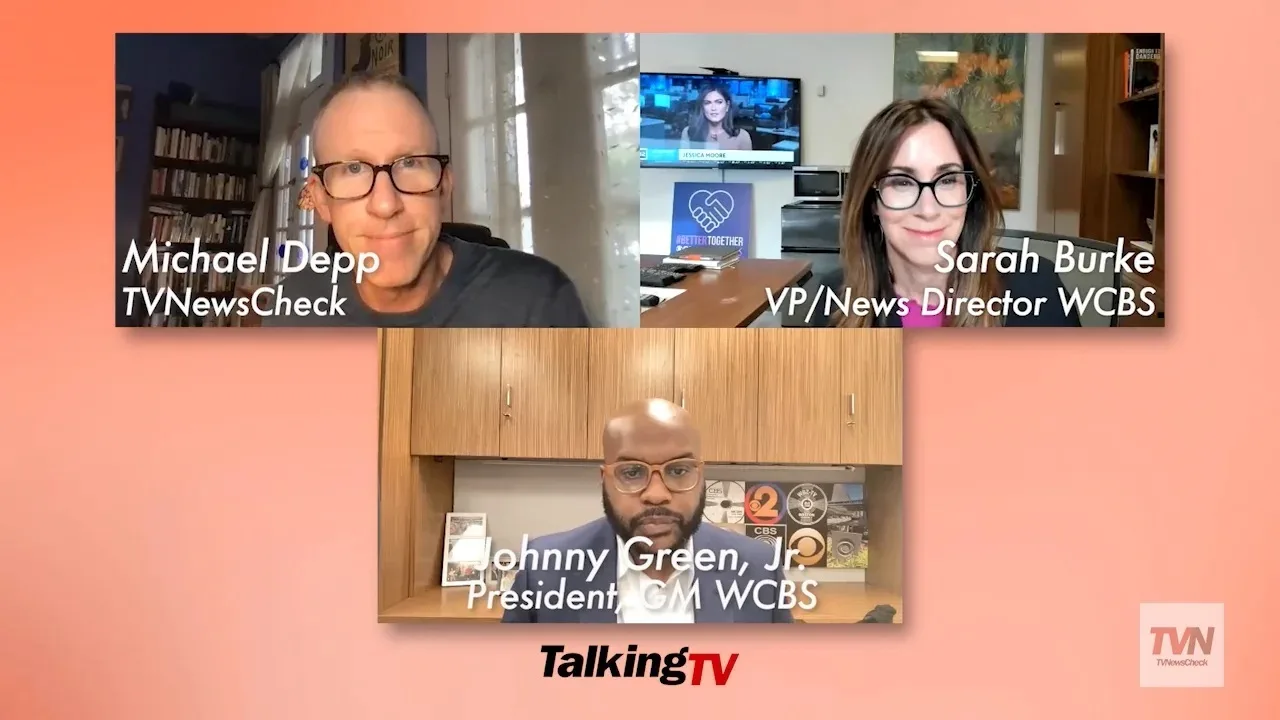
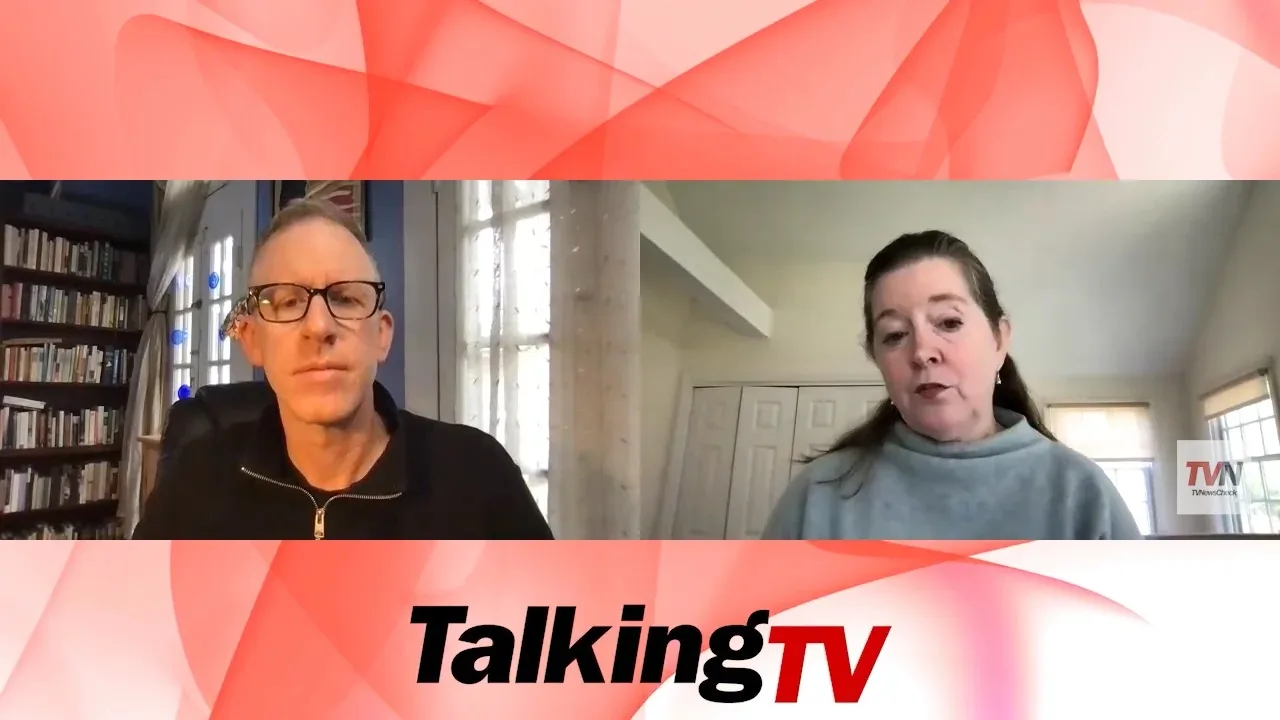


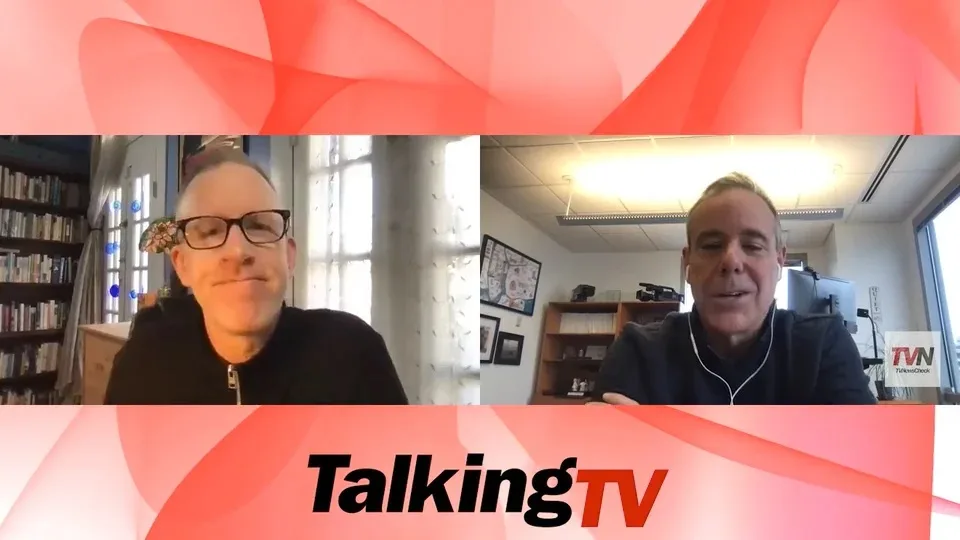

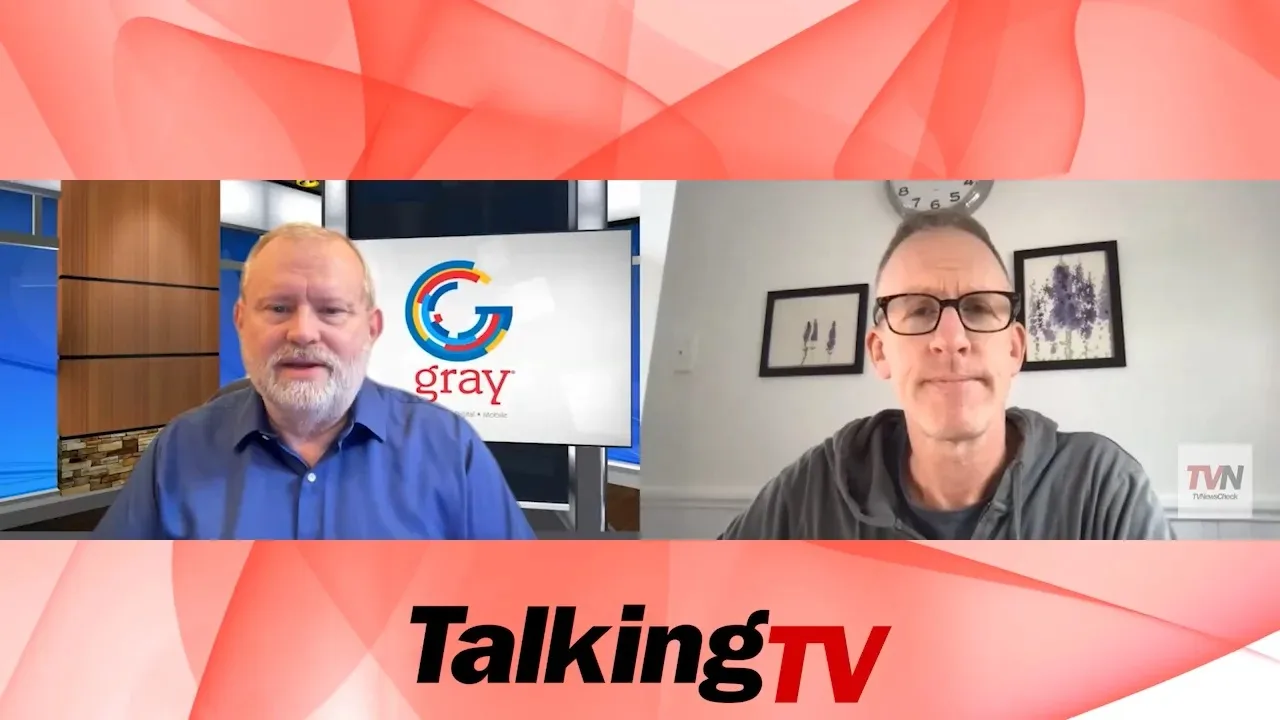














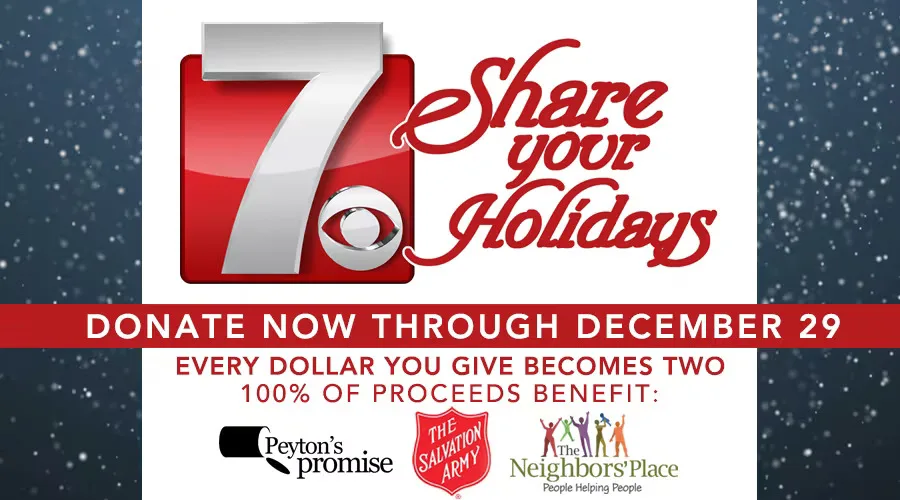


Comments (0)